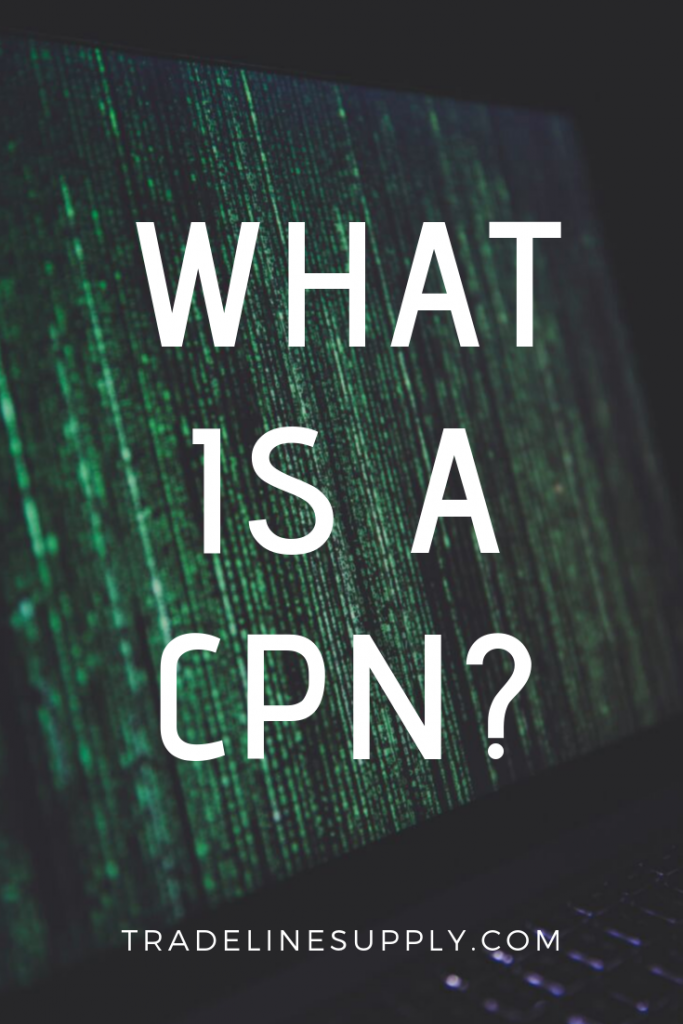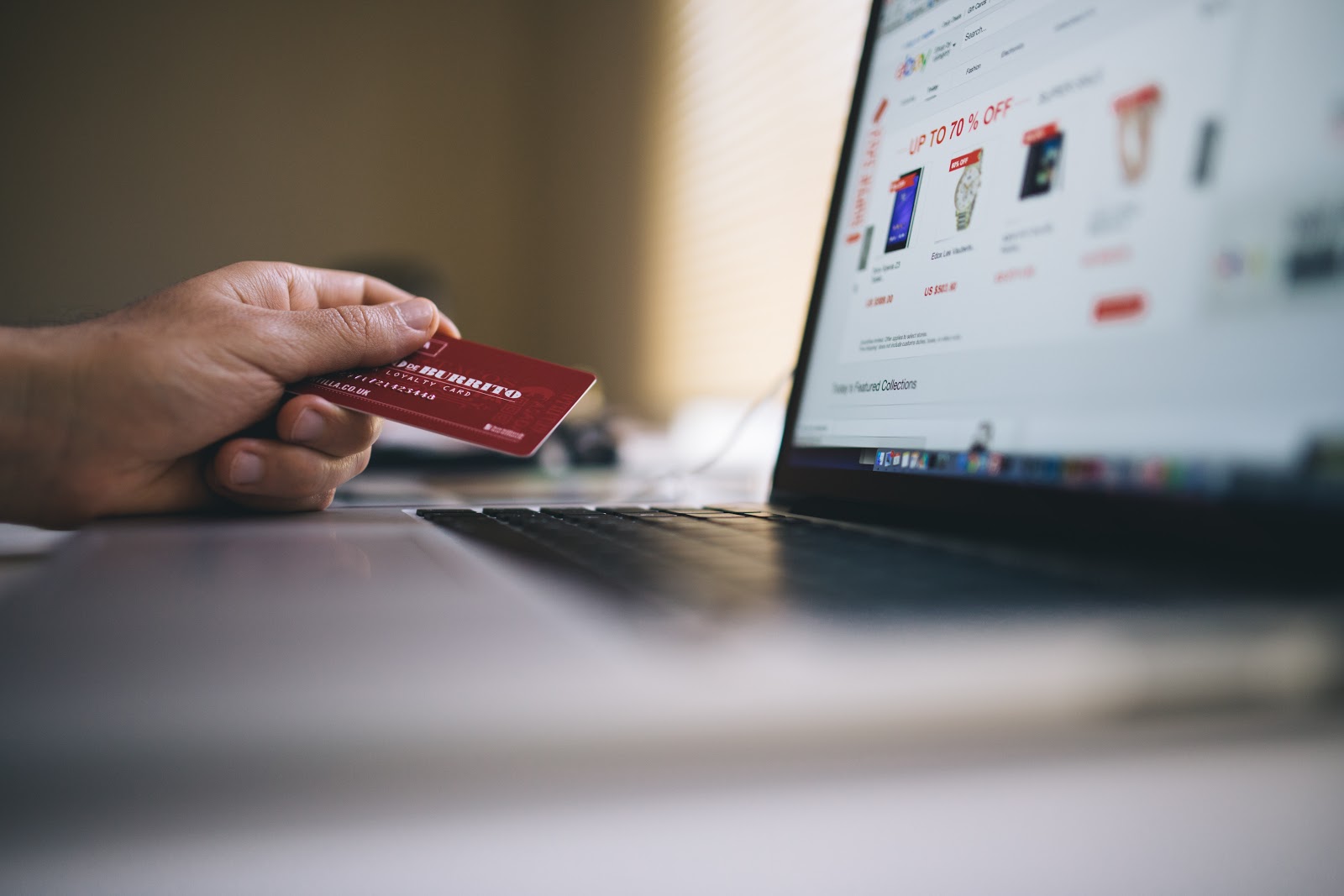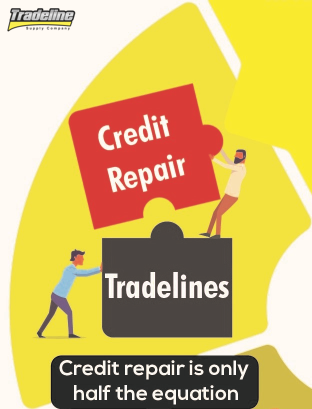What Is a CPN?
“CPN” or “CPN number” can stand for credit privacy number, credit profile number, or consumer protection number. A CPN is a 9-digit number that is often marketed as a replacement for your social security number (SSN).
Some sources claim that celebrities and government officials use CPNs to maintain their privacy, since SSNs are linked to a lot of personal information, but there is no documented legitimate source for a CPN. The Social Security Administration is the source for all SSNs and the Internal Revenue Service (IRS) is the source for all Employer Identification Numbers (EINs). These organizations do not issue CPNs and no other government entities issue such numbers.
You may have seen some businesses claim to sell CPNs as a way for consumers with poor credit to apply for credit with a “clean slate.” Since the CPN is a different number than your SSN, it does not have your credit report associated with it. These companies would like you to believe that you can purchase a CPN and use it instead of your SSN on credit applications, thereby hiding your credit history from creditors.
A CPN might sound like a good solution if you have concerns about privacy or if you have had trouble with your own credit and want to “start fresh.” However, you should exercise extreme caution when dealing with anyone trying to sell you a CPN. Keep reading to find out why.
How Do CPNs Work?
Sellers of CPNs often claim that the use of these numbers is permissible thanks to the U.S. Privacy Act of 1974. This act allows people to withhold their SSNs on documents if providing an SSN is not expressly required by federal law.
Since the federal government does not require that consumers provide SSNs on credit applications from private companies, you are free to withhold your SSN—however, the creditor is also free to deny you credit without this information. The U.S. Privacy Act of 1974 does not permit the use of CPNs on credit applications, contrary to what some credit repair companies would like you to believe.
The reason some people can get away with using false SSNs sold as CPNs on credit applications, instead of their real SSN, is that lenders sometimes fail to cross-verify applications thoroughly enough to confirm that the name on the application matches the listed SSN.
Although you may encounter many businesses offering “clean” CPN numbers for sale, they won’t tell you where these numbers came from or how they were obtained. They cannot provide legitimate documentation on where these numbers originated from.
Some sellers falsely claim that they have attorneys who can request a CPN number application from the government for you, but since the government does not issue CPNs, this is impossible. In reality, there are two ways that disreputable companies obtain so-called CPNs, both of which are illegal:
They use real SSNs that have been stolen from other people, often from children, the elderly, deceased people, homeless people, or those who are incarcerated. Scammers target these demographics because they are less likely to notice that their SSNs have been compromised. If someone promises to sell you a CPN that has a certain credit score or credit report, this is a big red flag that it is actually an SSN that has been stolen from someone else.
They create new, fake social security numbers that have not yet been issued by the United States government. They do this by using algorithms to generate 9-digit numbers and checking them against online databases to see which numbers can successfully pose as SSNs. They then sell these numbers as CPNs to unsuspecting consumers.
How to Get a CPN
The truth is that there is no legitimate way to obtain a CPN because CPNs are not issued or recognized by any government agency. As described above, the only way to get a CPN is to purchase a stolen or fake social security number on the black market.
While credit repair agencies and other companies who sell them may appear legitimate, there is nothing legitimate about buying a fraudulent SSN, which is what a CPN is. An SSN is a government identifying number and the government does not “sell” these numbers or offer CPN applications.
Some businesses may alternatively try to sell you an EIN, or employer identification number, promising that EINs are a legitimate form of CPNs. Although the IRS does issue EINs, these are exclusively for business use, which means that an individual hoping to improve their credit cannot legally use an EIN in place of their SSN.
In addition, according to the IRS, “EINs are issued for the purpose of tax administration and are not intended for participation in any other activities.” Businesses can obtain loans associated with their EIN number, but individuals may not use an EIN as an alternate SSN to obtain a personal loan.
The Social Security Administration has the authority to assign new SSNs in extreme cases, but the requirements are strict. You can only get a new SSN if your life is in danger or if you can prove that someone has stolen your number, is actively using it, and is causing you significant continued harm.
If you do get a new SSN, your new number is still linked with the credit from your old number, and they both receive special indicators that help alert creditors of this change, so this would not work as a way to leave your credit history behind.
Credit Privacy Numbers: Are They Legal?
To find out whether CPNs are legitimate and legal, we can go straight to the highest authority to see the official policy in writing. In this case, the highest authorities are the Federal Trade Commission (FTC) and the Social Security Administration (SSA). The FTC is a federal agency that polices business activities to help protect consumers and the Social Security Administration (SSA) is the agency that administers all Social Security-related programs, so these are the governing authorities when it comes to consumer protection, identity theft and fraud. The policies of these federal institutions override any other opinions or lower-level organizations.
According to the FTC, “It is a federal crime to lie on a credit or loan application, misrepresent your Social Security number, and obtain an EIN from the IRS under false pretenses.”
Clearly, using a CPN on any credit or loan application that asks for your SSN is misrepresenting your social security number. Therefore, engaging in this action is an act of fraud. There are many credit repair companies and other businesses who appear to be legitimate offering to sell you a CPN, but the bottom line is that if you misrepresent your SSN, you are committing a federal crime. This is verifiable in writing straight at the source, from the highest governing agencies.
The Federal Trade Commission has issued warnings against companies that sell CPNs to those looking to improve their credit, labeling such practices as scams. Here is what the FTC has said about CPNs:
“The credit repair companies may tell you to apply for credit using the CPN or EIN, rather than your own Social Security number. And they may lie and tell you that this process is legal. But it’s a scam. These companies may be selling stolen Social Security numbers, often those taken from children. By using a stolen number as your own, the con artists will have involved you in identity theft.”
If you follow this advice and use a CPN instead of your SSN on a credit application, you would be committing fraud, and you could face some serious charges and prison time.
The Social Security Administration has also been very clear about their official stance on CPNs:
“The proliferation of Credit Privacy Numbers (CPNs) is a relatively new SSN misuse scheme and a threat to the security of child identity information… Despite what many of these credit repair websites imply, consumers should know that CPNs are not legal.”
Boosting Your CPN Credit Score
Credit repair companies that sell CPNs and CPN tradeline packages often say that it is easier to “boost” the credit scores of CPNs and allow you to essentially hide bad credit that may be associated with your real SSN. While this tactic is becoming more common, the fact that it is happening does not make it legal. Hiding previous bad credit by using a replacement SSN is misrepresenting your identity and is considered fraud on a federal level.
It is not surprising that the lure of buying a CPN and starting over with a clean slate appeals to many people. When consumers encounter misinformation circulated by disreputable companies and hear about others having success using CPNs, it is easy to see how someone could fall for this trap and unknowingly participate in fraud. Unfortunately, the idea of using CPNs as a quick fix for credit is indeed too good to be true.
The sad fact is that ignorance is no excuse for breaking the law, and blaming the company for selling illegal services does not make the consumer immune to the potential consequences. If someone does decide to purchase a CPN and use it instead of their SSN, they are creating a verifiable paper trail of this action that could come back to haunt them many years down the road, since records would be created every time a person uses this tactic.
CPNs and Synthetic Identity Fraud
The use of CPNs has contributed to a new form of fraud called synthetic identity fraud, also known as synthetic identity theft. Synthetic identity fraud is the criminal practice of creating fake personas through a combination of real and fictitious data.
For example, scammers could combine the address of one person with the phone number of another and the SSN (or CPN) of a third. This false identity is then used to open credit accounts and make thousands of dollars in fraudulent purchases, followed by defaulting on payments. Since the fraudulent account is not linked to a real individual, it is difficult to track down the perpetrator and collect the debt.
It is estimated that this type of fraud causes billions of dollars in losses annually. Worse still is the damage it causes to victims whose identities are compromised.
This is where CPNs come into play. As we have seen, many CPNs sold to consumers are actually SSNs that belong to real people, especially children. Individuals seeking to “repair” their credit combine these stolen SSNs with their real name to essentially create a synthetic credit profile.
When criminals, or even unsuspecting consumers, use a child’s SSN to obtain credit and then default on the debt, this leaves lasting negative marks on the child’s record. When the child becomes an adult, they will face suspicion from lenders and difficulty obtaining credit due to the delinquencies on their record. They may not even be aware of the crime until they need to use their SSN for financial reasons as an adult. For example, they may apply for student loans and be denied as a result of the bad credit associated with their SSN.
The credit industry and the federal government are increasingly focusing on ways to crack down on this new type of fraud. In 2017, the FTC and the U.S. Government Accountability Office both convened groups of experts to discuss how to combat synthetic identity fraud going forward. According to the Department of Justice, U.S. Attorneys are ramping up prosecution of these cases.
In May 2018, the government passed a law that intends to reduce rates of synthetic identity fraud. The law requires the SSA to provide banks with an electronic system that can check whether an applicant’s name and date of birth matches their SSN within 24 hours. This system will make it easier and faster for banks to detect synthetic identities before they unwittingly provide credit to fraudsters.
Banks are also beginning to experiment with biometric technology that could help fight fraud, like using voice recognition security to detect if a certain voice has been associated with multiple identities.
With the increasing scrutiny on synthetic identity fraud and CPN fraud, buying or using a CPN for any reason is a dangerous game. If you were to obtain a CPN and use it instead of your SSN on documents, you would be creating a record of committing fraud that could be detected and traced back to you, especially as banks and the federal government start taking more severe action against fraud.
Avoiding a CPN Scam
When it comes to protecting yourself from CPN scams, your best bet is to stay far away from anyone trying to sell you a CPN, EIN, or anything that is supposed to somehow “wipe the slate clean” of your bad credit. Companies claiming that you can apply for a new line of credit in a way that is completely independent of your credit history are trying to mislead you.
Since lenders can look into your address, name, date of birth, and other information besides your SSN, they can easily tell that you have used a false SSN because they have other information they can use to verify your identity. For this reason, some CPN providers encourage their customers to change their names and addresses. If a company selling CPNs advises you to change your address, phone number, or anything else about your current identity, that is a huge red flag that they are committing fraud—and so are you.
Unfortunately, many scammers often prey on those who are most in need: those who are low-income and can’t afford another financial hit. Tricked by promises of clean scores and better credit, users are misled into buying a CPN.
The problems occur when CPNs are used to take out lines of credit. If the borrower fails to make payments, the lender may have little recourse since a fraudulent ID number was used for the borrower. At this point, an investigation may be opened, and investigators can follow the paper trail to the consumer.
Although there are stories of people getting away with using CPNs, keep in mind that sometimes investigations take place and charges are filed several years after the fraudulent activity occurred.
In 2015, a man from Louisiana was charged with felony racketeering, including theft, identity theft, and money laundering for defrauding hundreds of people and financial institutions with his credit repair company. He sold SSNs stolen from children as CPNs for hundreds of dollars each, claiming they would replace the SSNs of the unknowing victims of his scheme. He could face up to 75 years in prison if convicted.
In another current example that took place in 2018, Calvin Wayne Cade, Jr., of Oklahoma City, pleaded guilty to knowingly making a false statement to a financial institution by using CPNs to falsify his SSN in credit applications. The CPNs he used were stolen SSNs belonging to children born in 2006 and 2008. By using a fraudulent number on credit applications, Cade deceived banks, credit card companies, and retailers into thinking he had a better credit history than he really did.
With the lines of credit he received using these CPNs, he purchased vehicles, TVs, furniture, computers, and more, and then failed to make payments on the credit accounts, causing financial losses to the creditors. Cade was sentenced to 18 months in prison followed by three years of supervised release. He has also been ordered to pay $112,924.54 in restitution to the other creditors he defrauded.
Summarizing CPNs
A social security number is the most important and high-level personal identification number used in the United States. The government issues these numbers and they are not to be bought or sold on the open market. Misrepresenting your SSN is a federal crime, so by definition, using a CPN in place of your SSN is also a federal crime.
The proliferation and use of CPNs has become highly associated with a new form of fraud called synthetic identity fraud. Since this is relatively new the government is quickly catching up to illegal businesses who sell these CPNs which assist those who are looking to synthesize a new identity. Court cases as recent as 2018 are showing that people who engage in this type of fraud can receive heavy fines and prison time.
While there are many companies who advertise that CPNs are perfectly legal, the governing federal agencies have clearly stated this is not the case. The use of CPNs to obscure SSNs is illegal, period.
The government has prioritized synthetic identity fraud as a major concern of national security. In response, federal agencies including the Department of Homeland Security, the FBI, the Postal Inspection Service, the Secret Service, the Department of State, Social Security Administration, and the Federal Trade Commission are creating new task forces to investigate and prosecute fraudulent activity.
Why We Don’t Work With CPNs
Since using CPNs to apply for credit is a federal crime, we cannot assist consumers who are looking to use them. Our service is strictly for people using a valid SSN. We verify all of our clients’ SSNs through third-party databases before processing orders and we take all necessary measures to protect our credit partners, our clients, and creditors. Under no circumstances will we accept a CPN, and any orders attempting to bypass our filters will not be refunded.
If you’re looking for a quick solution to erase your debt or a poor credit score, there is no silver bullet. Not only will CPNs not solve your problems, but you could get in serious trouble with the government. Instead, work on building positive credit the right way using your SSN.
Read more: tradelinesupply.com









